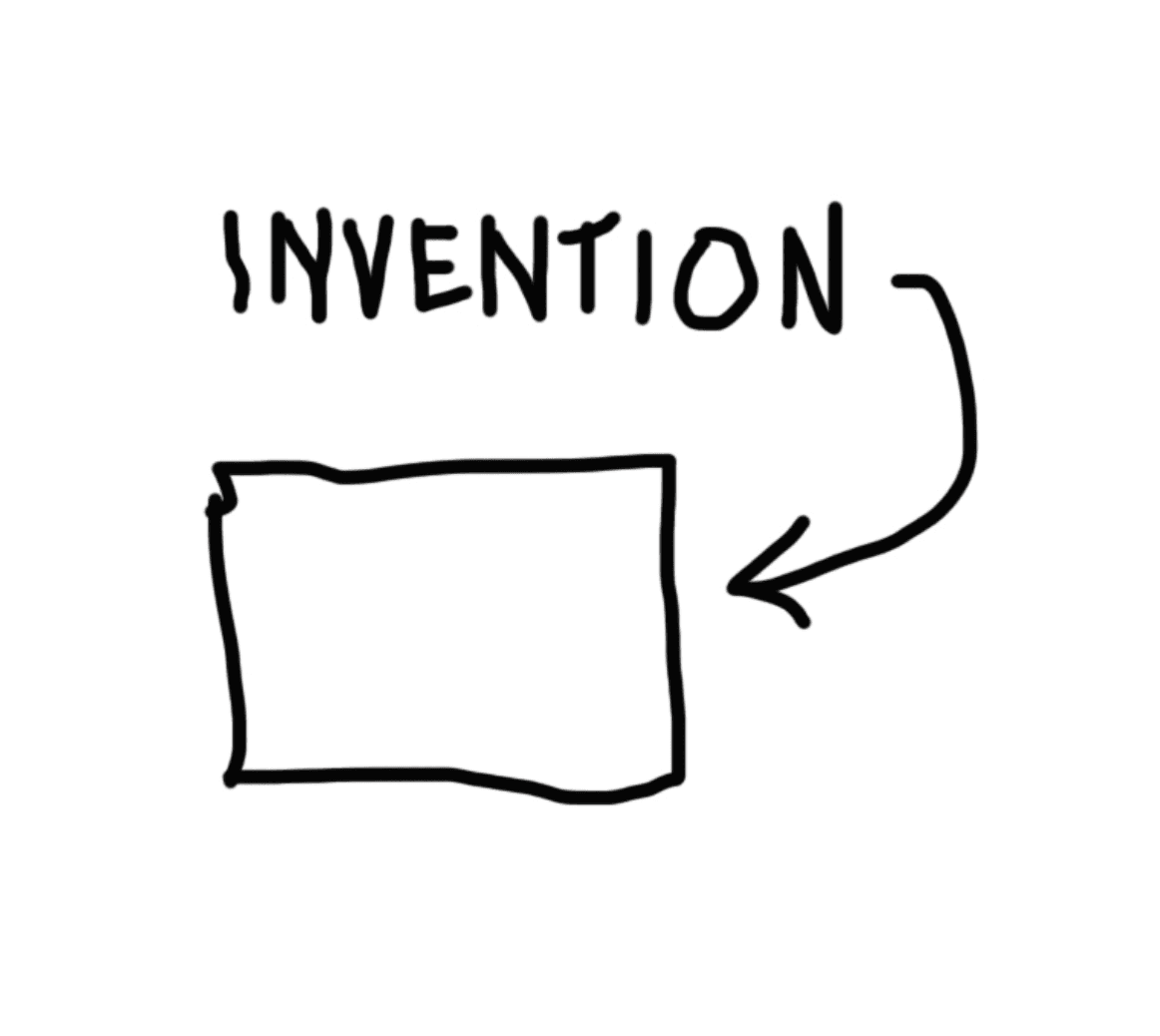The Reality of Provisional Patent Applications
CAVEAT: I am not a lawyer and this is not legal advice. I'm someone who's looked at 20,000+ inventions, has overseen 200+ US and international patent filings, has filed dozens of PPAs on my own, has been knocked off multiple times, has been through $5,000,000 patent litigation 1X and $2,000,000 patent litigation 2X, and has licensed inventions to Fortune 500 companies.

For 99% (or more) of early stage inventions, there's little reason to spend a lot of time or money on a PPA. It's worth doing, but not something to stress about. The main value of the PPA, for early stage undeveloped inventions, is the ability to say "patent pending." You can get that by simply filing a drawing of a square and a specification that says "invention." I suggest you substitute a drawing of your own invention for the box. But you get the idea.
"What about protecting my idea?"
At the early stage of most inventions, the details are not developed enough to get a meaningful patent. In other words, you can't really protect it. Any patent claim that might issue from your early stage PPA (if one is possible at all) is likely to be easy to get around. BUT, since PPAs are not published, no one knows what's in one. You can pretend you have a well written PPA on file that covers the details of your invention idea. Your protection is that no one knows what you've covered.
It's like a finger gun under a coat.
You need to weigh the risk of losing priority against the cost of trying to reduce or eliminate it. The PPA establishes priority for claims protected in an issued patent. A book could be written on what that means. But the bottom bottom line is that a) knockoffs at the idea stage are incredibly rare, b) most ISSUED patents offer very little protection and c) a PPA is a long way from being an issued patent.
Someone casually thinking of doing a knockoff is likely to assume you've written a strong PPA that covers a lot of cool details (how you present yourself and the invention will strengthen or weaken that assumption). Let them hold that thought. That thought may change If/when your product is on the market and proven successful.
Once you've decided you're serious and that the invention is worth protecting, then develop the idea and hire a patent attorney to write a non-provisional patent app. Or, at the very least, take the time to write and file a detailed PPA on your own. With fast moving tech inventions (and in some other cases), filing a good provisional app ASAP can make a huge difference. But in well established categories where the pace of innovation is slow, the odds are low of someone filing ahead of you while you are doing initial market research.
Don't stress so much about the 1 year deadline either.
You can refile a PPA again and again for the same invention. As you learn things and add details, that's something you'll want to do anyway. PPAs can overlap. Each time you file one, a new one year clock starts ticking. The second PPA will not cover things you've publicly disclosed and will leave open the possibility that someone jumps ahead of you between the 1 year deadline for your first PPA filing and the second PPA filing. Your second PPA can be another finger gun or, if you're ready, you can try and make it real.
Once you've confirmed the invention is worth protecting, spend the money and hire a professional to file a non-provisional patent. Patents are complicated and if yours is ever tested in court you'll benefit from having a thorough and professional filing.
share this article: facebook